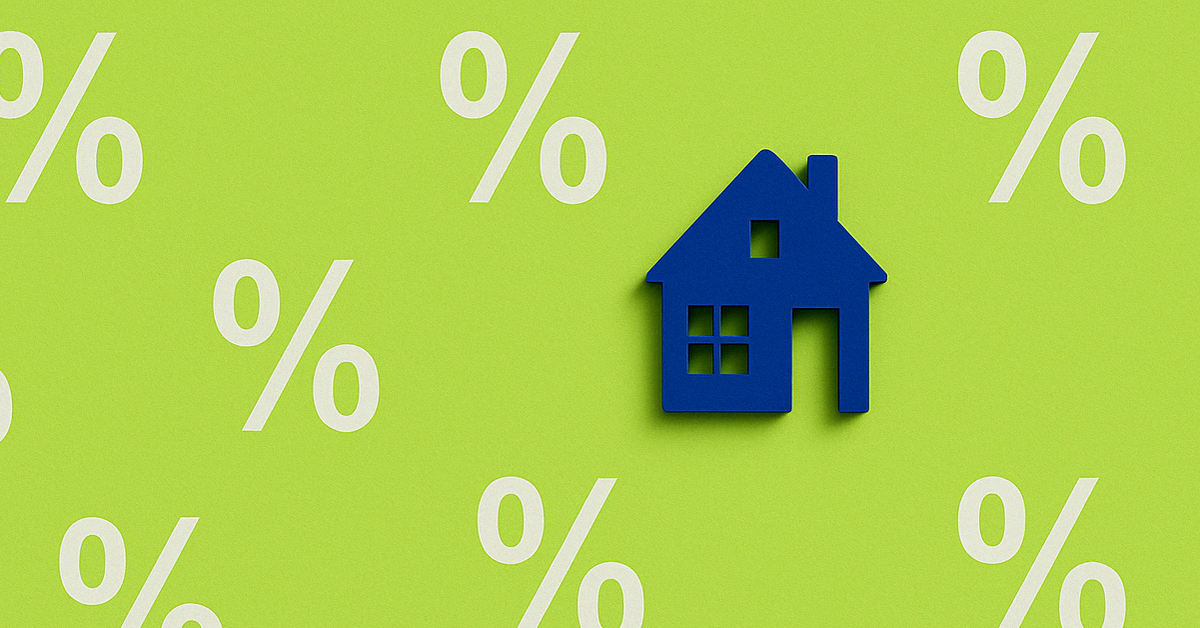I'm a Gen-Z Homeowner. Here Are 3 Things I Wish I Knew Before I Bought

KEY POINTS
- Choosing between a 15-year mortgage and a 30-year mortgage can have a huge impact on your finances.
- Buying down your rate can be a smart move if you have the upfront cash.
- Prepare yourself (and your wallet) for closing costs and other expenses.
Becoming a homeowner was, without question, one of the most exciting financial milestones of my life. But I'm no mortgage expert, and there were definitely some things I had to learn along the way.
Here are three things I learned during -- or after -- the home-buying process, all of which I'll be keeping in mind for next time.
1. 15-year vs. 30-year isn't just about how quickly you pay it off
Common knowledge might tell you that a 15-year mortgage, if you can afford it, is ideal. In exchange for higher monthly payments, you'll enjoy a lower interest rate and pay off your mortgage twice as fast.
But a 30-year mortgage may actually be the better financial choice, because it leaves you with more cash to invest every month. Warren Buffett, for example, could've easily bought his home in cash. Instead he took out a 30-year mortgage and invested what was left. If your investments earn more than the additional interest you're paying, then you're coming out ahead.
You don't have to be like Buffett. But the point here is that the flexibility of a 30-year mortgage might mean more to you than the lower interest on a 15-year mortgage.
2. Buy down your rate if you plan to stay a while
One trick I was able to take advantage of: paying more upfront to lower my interest rate in a process called "buying points."
Typically, each "point" costs about 1% of your loan amount and lowers your rate by 0.25%. If you have a loan of $300,000 and a 7% interest rate, for example, you could pay $3,000 to lower your rate to 6.75%.
If you plan to stay in your home long term, buying down your rate can save you thousands in interest. But if you're not sure how long you'll stay, it might not be worth it.
In my dream financial scenario, I'm able to hold on to this starter home and rent it out when I move away -- which means buying down my rate is absolutely the move.
With Pennymac, I was able to substantially buy down my rate and enjoy an affordable monthly payment for years to come. If you're in the market for a mortgage, I'd place Pennymac near the top of your list. Read our full lender review to see if it's a fit for you today.
3. Be prepared for all sorts of unexpected costs
Here's the thing I didn't exactly see coming: thousands of dollars in onetime charges.
Your down payment is far from the only thing you'll have to budget for. You've also got closing costs, which include things like lender fees, title insurance, and appraisal. All told, they'll typically cost you 2%-5% of the home's price. For a $300,000 home, that's $6,000 to $15,000.
Then you've got property taxes. And homeowner's insurance. And HOA fees. And then you factor in moving costs, appliances, furniture, renovation, repairs…
In short, be prepared. I'd recommend having tens of thousands of dollars stashed safely in an emergency fund for whatever you need in those first few months of homeownership. You'll be much better off than I was.
Apply for a flexible, manageable mortgage today
Buying a home can seem complicated, but it's also fulfilling. It's easily one of the best financial decisions I've ever made. Just make sure you know what to expect going in and put yourself on the best financial footing from the start.
When it's time to compare offers, check out our list of the best mortgage lenders to get started.
免責聲明:投資有風險,本文並非投資建議,以上內容不應被視為任何金融產品的購買或出售要約、建議或邀請,作者或其他用戶的任何相關討論、評論或帖子也不應被視為此類內容。本文僅供一般參考,不考慮您的個人投資目標、財務狀況或需求。TTM對信息的準確性和完整性不承擔任何責任或保證,投資者應自行研究並在投資前尋求專業建議。
熱議股票
- 1
- 2
- 3
- 4
- 5
- 6
- 7
- 8
- 9
- 10